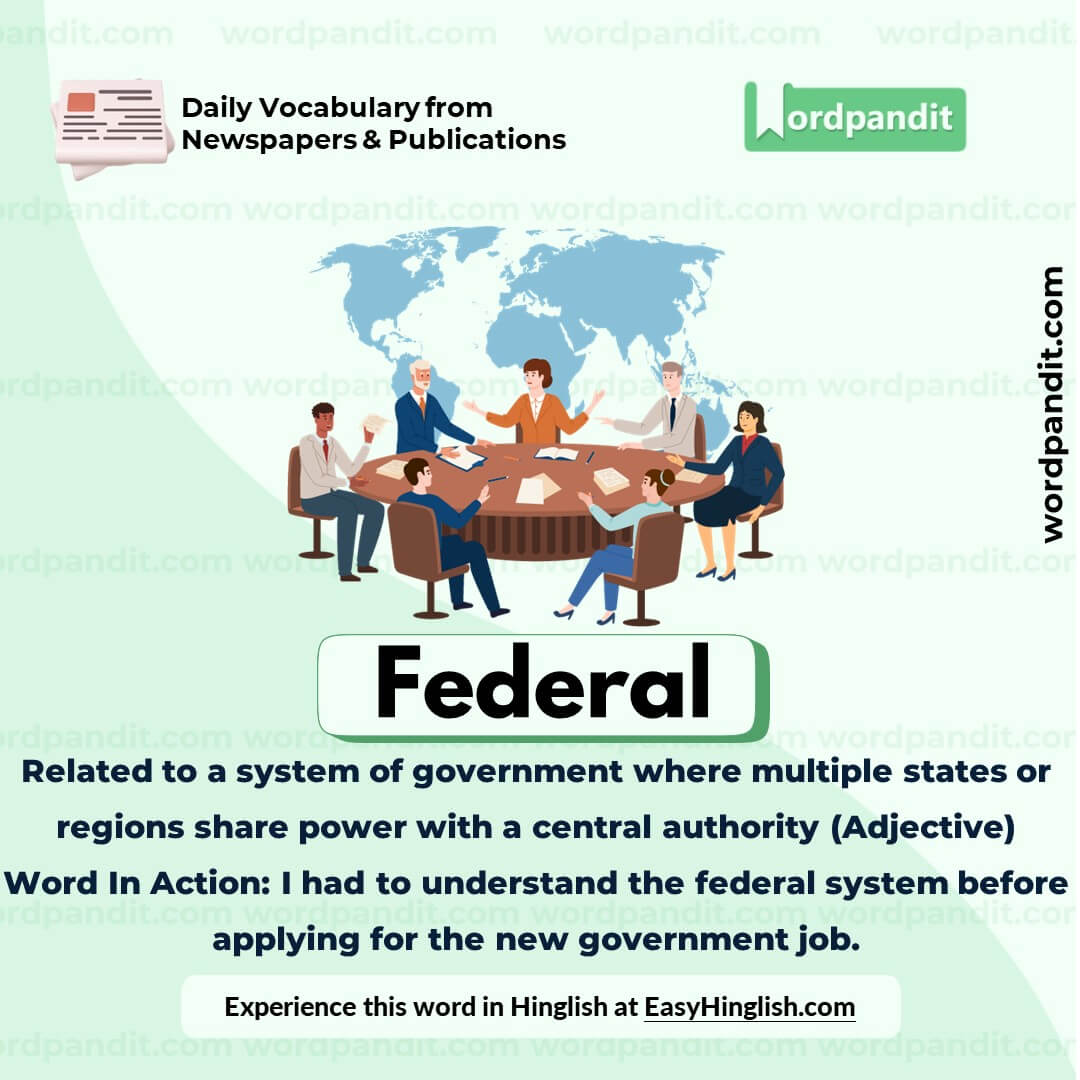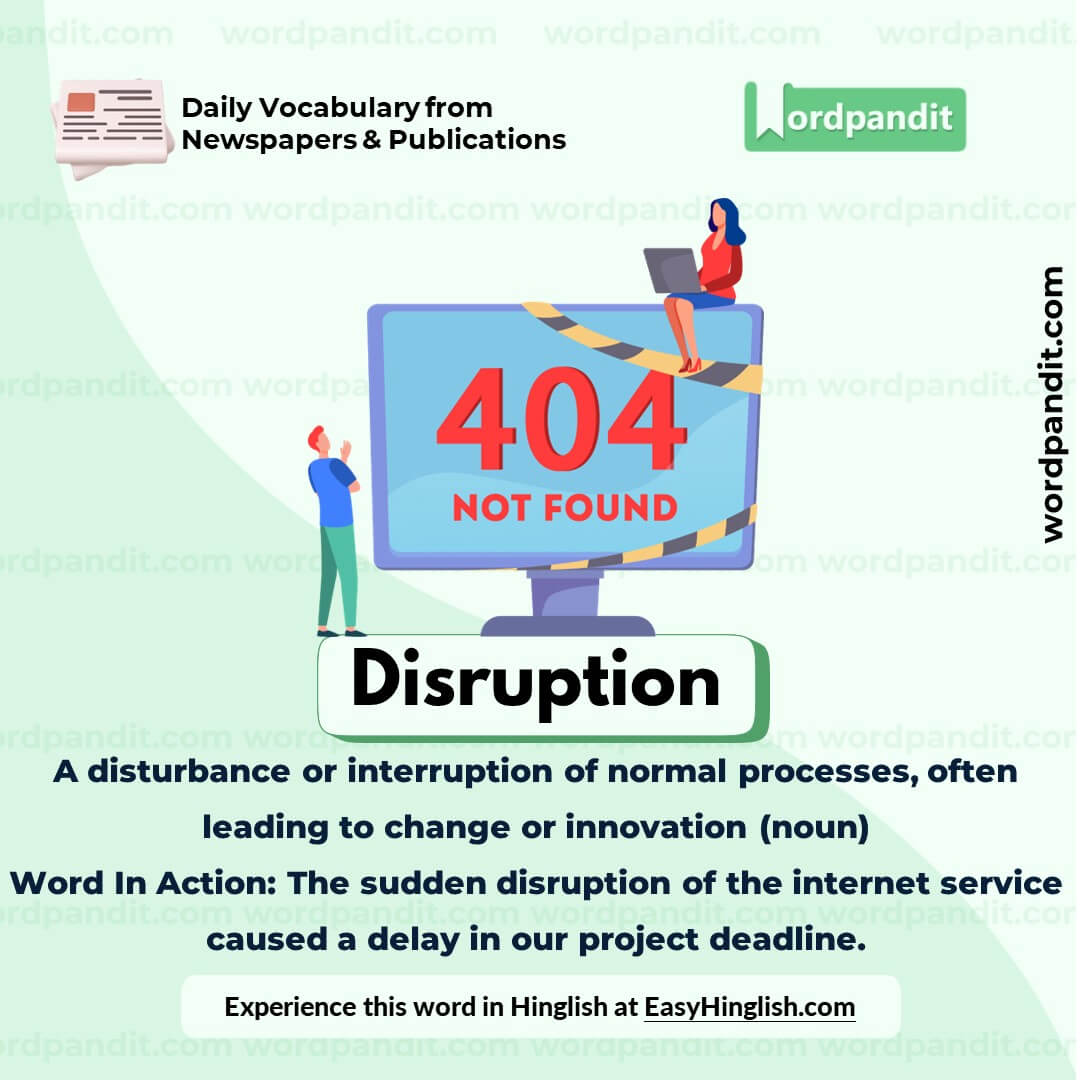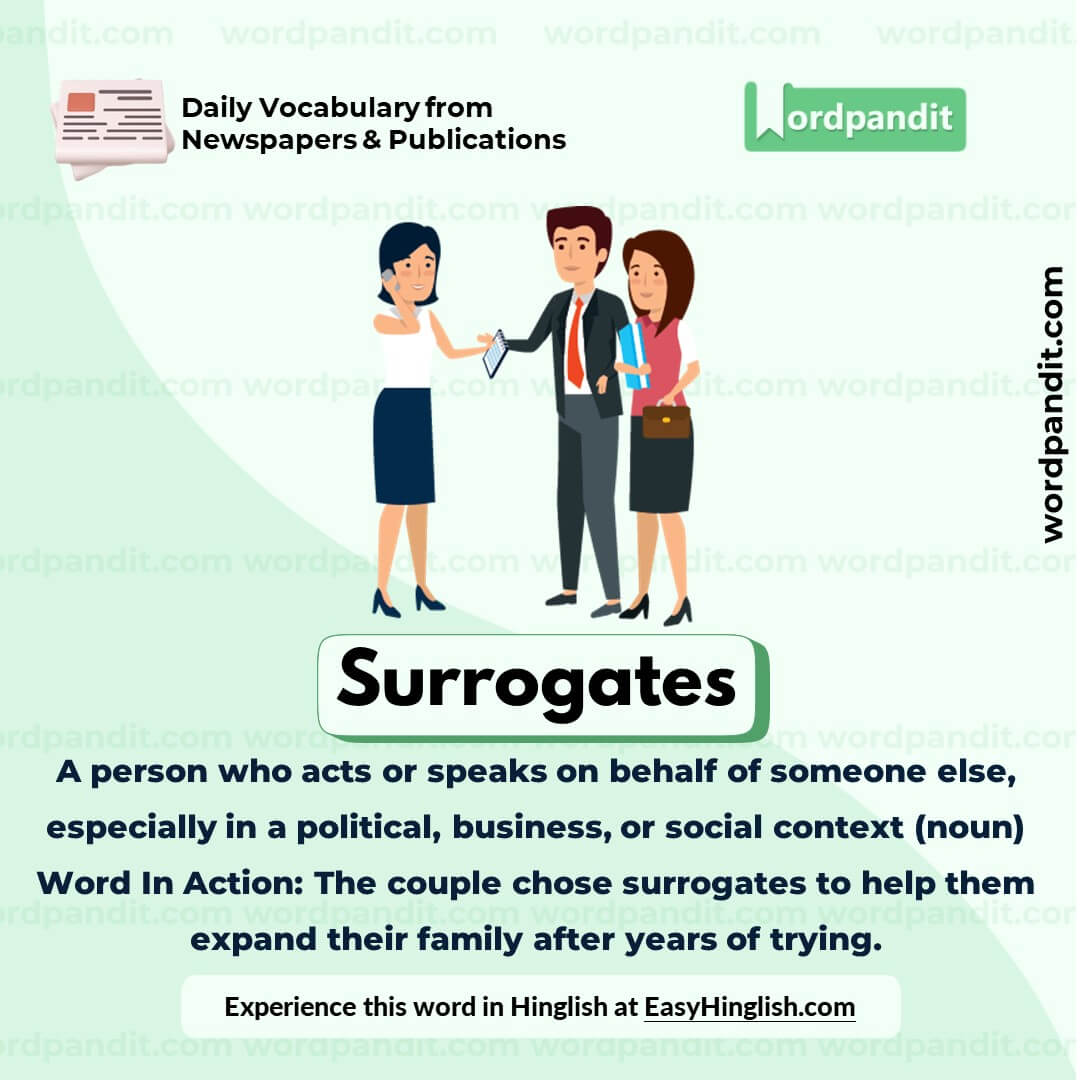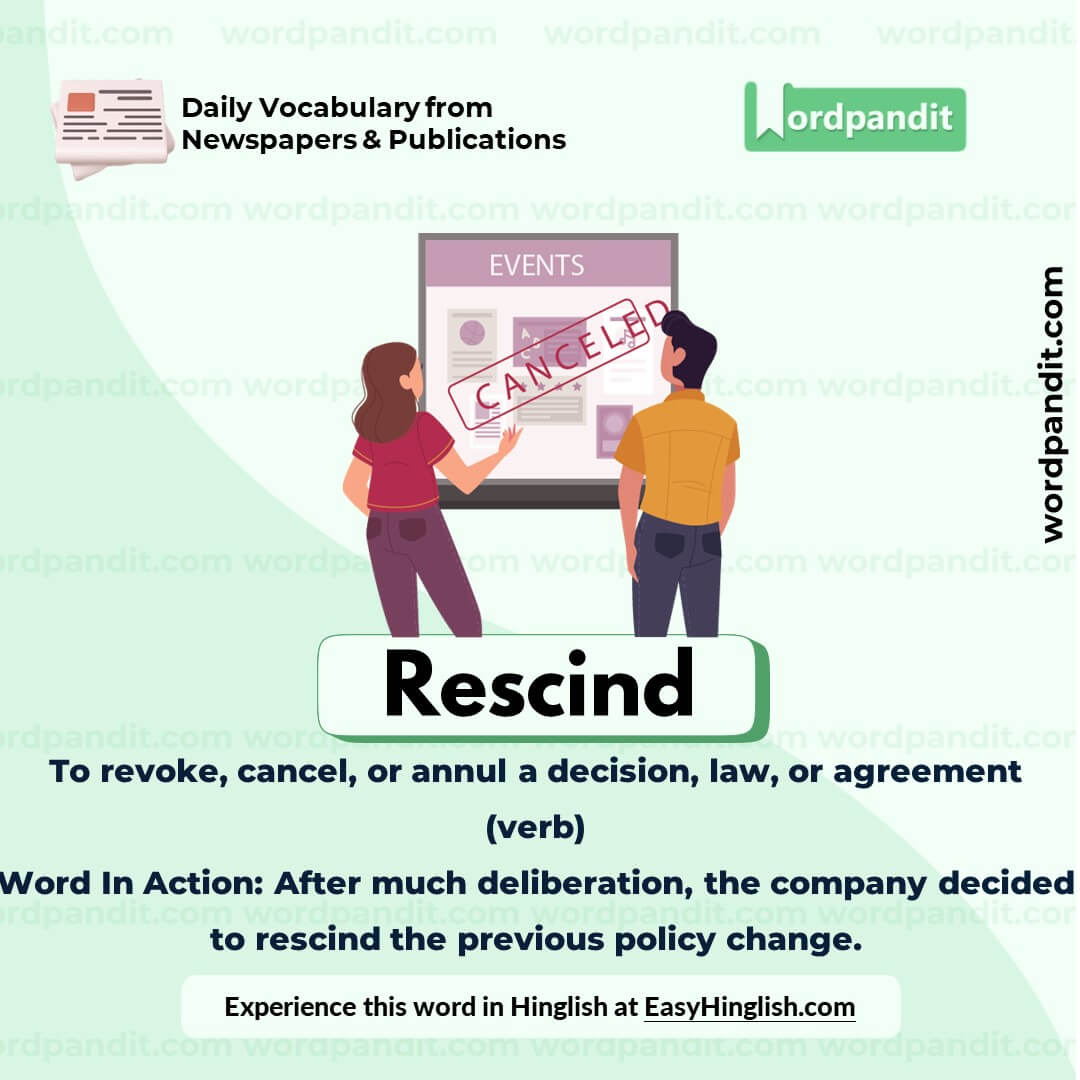Daily Vocabulary from International Newspapers and Publications
Expand Your Vocabulary with Wordpandit’s Global Vocabulary Hub
At Wordpandit, we are committed to helping you develop a truly global vocabulary by drawing from some of the most respected international publications. This section is designed to keep you ahead of the curve by introducing you to words that define global conversations and trends.
The Power of Global Sources
To help you think and communicate on a global scale, we curate vocabulary from renowned international sources, such as:
- The New York Times
- The Washington Post
- BBC
- The Guardian
- The Economist
- Scientific American
- Psychology Today
- And many more...
Stay Global, Stay Competitive
Our daily updates from international publications ensure you are consistently exposed to new words that reflect global news and developments, making sure your vocabulary is not only current but also globally relevant.
Enhance Your Global Perspective
Whether you’re preparing for international exams, aiming to excel in global business communication, or want to enhance your language skills for personal growth, Wordpandit offers the resources you need to thrive in a global context.
Effective Learning, Global Reach
Our learning methodology combines global examples, memory aids, and interactive activities, allowing you to internalize new words effectively and apply them in real-world scenarios.
Begin Your Global Vocabulary Journey Now!
Why Choose Wordpandit?
Practical Learning: Focus on words you'll actually encounter in real-world reading, enhancing your comprehension and communication skills.
Diverse Content: From current affairs to scientific breakthroughs, our varied sources expose you to vocabulary across multiple domains.
Effortless Integration: Make Wordpandit a part of your daily routine. Just a few minutes each day can significantly boost your lexicon over time.
Your Path to Vocabulary Mastery
- Visit our Daily Vocabulary section regularly
- Explore new words and their usage in context
- Practice incorporating these words into your own writing and speech
- Track your progress as your vocabulary expands
Start Your Journey Today
Embark on your vocabulary enhancement journey with Wordpandit. By consistently engaging with our daily posts, you'll build a robust vocabulary that serves you well in academic, professional, and personal contexts.
Remember, a word a day keeps linguistic limitations at bay. Make Wordpandit your daily companion in the quest for vocabulary excellence!
WORD-1: Federal
Context:
"The Tesla executive and the former presidential candidate are meeting with staff and interviewing experts as they plan for massive federal cuts." - The Washington Post
Explanatory Paragraph:
The word "federal" refers to something related to the central government of a country, especially in a system where power is divided between a central authority and smaller political units like states or provinces. In this context, "federal cuts" would likely refer to reductions in the national government’s budget or spending.
Meaning: Related to a system of government where multiple states or regions share power with a central authority (Adjective)
Pronunciation: /ˈfɛdərəl/
Difficulty Level: ⭐⭐ Intermediate
Etymology: The word "federal" comes from the Latin "foedus," meaning "league" or "treaty," which evolved to refer to the system of shared governance.
Synonyms & Antonyms:
Synonyms: national, central, government-run
Antonyms: state, provincial, local
Usage Examples:
- The federal government is responsible for national defense, foreign policy, and interstate commerce.
- In a federal system, each state or region has a certain degree of independence.
- The debate on federal healthcare continues to divide the nation.
- The senator proposed federal legislation to address climate change on a national scale.
Cultural Reference:
"The Constitution establishes a federal system of government, dividing powers between the national government and the states." - U.S. Constitution
Think About It:
How do you think the balance of power between federal and state governments affects the daily lives of citizens? Can there be too much centralization of power?
Quick Activity:
Research a country with a federal system of government (e.g., the U.S., India, or Canada) and list the powers held by both the national and state governments. Compare and contrast them.
Memory Tip:
Remember the word "federal" by associating it with the phrase "federal government," which is the central governing body of a country. Think of "federation" as a group of states united under one central government.
Real-World Application:
In countries with a federal system, the term "federal" is used to describe everything from the national government itself to its policies, taxes, and laws that apply across the entire country, in contrast to laws that apply only to specific regions or states.
WORD-2: Disruption
Context:
"Department of Government Efficiency” past the realm of memes and viral posts into potential real-world disruption." - The Washington Post
Explanatory Paragraph:
"Disruption" refers to a significant and often sudden change or interruption in the usual way of doing things. In this context, it suggests that something previously seen as trivial (like memes or viral posts) could potentially create major changes or challenges in the real world, especially in areas like government efficiency.
Meaning: A disturbance or interruption of normal processes, often leading to change or innovation (noun)
Pronunciation: /dɪsˈrʌpʃən/
Difficulty Level: ⭐⭐⭐ Intermediate
Etymology: "Disruption" comes from the Latin word "disrumpere," meaning "to break apart." It evolved to refer to the breaking apart of established systems or processes.
Synonyms & Antonyms:
Synonyms: interruption, disturbance, upheaval, disorder
Antonyms: stability, continuity, order
Usage Examples:
- The rise of electric cars has caused a disruption in the traditional automotive industry.
- Technological disruption in education is changing how students learn around the world.
- The new policies introduced a significant disruption in the workplace, leading to protests.
- The social media influencer's viral post caused a disruption in the political discourse.
Cultural Reference:
"In Silicon Valley, disruption is often seen as the key to success. If you're not disrupting an industry, you're falling behind." - Tech entrepreneur
Think About It:
What are the potential negative and positive effects of disruption in society? Can every disruption lead to innovation, or are some just destructive?
Quick Activity:
Choose an industry (e.g., healthcare, entertainment, or transport) and identify one example of disruption that has occurred. Write a brief analysis of how the disruption has impacted the industry.
Memory Tip:
Think of the word "disruption" as "dis-" (a prefix meaning "apart") and "rupt" (from Latin "rumpere," meaning "to break"). So, "disruption" means "breaking apart" or "interrupting" the usual flow of things.
Real-World Application:
Disruption can be seen in many areas of modern life, especially in business and technology. Innovations like Uber, Airbnb, and blockchain technology have disrupted traditional industries, forcing companies and governments to adapt to new ways of working.
WORD-3: Surrogates
Context:
"Top Musk surrogates from his business empire — including private equity executive Antonio Gracias and Boring Company President Steve Davis — are involved in planning, the people said, along with a coterie of Musk friends and Silicon Valley leaders, including Palantir co-founder and investor Joe Lonsdale, who funds a libertarian-leaning nonprofit dedicated to government efficiency." - The Washington Post
Explanatory Paragraph:
The word "surrogates" in this context refers to individuals who represent or act on behalf of someone else, often in a professional or political capacity. In this case, Musk's surrogates are people from his business network who are helping plan and manage various projects on his behalf.
Meaning: A person who acts or speaks on behalf of someone else, especially in a political, business, or social context (noun)
Pronunciation: /ˈsʌrəɡət/
Difficulty Level: ⭐⭐ Intermediate
Etymology: "Surrogate" comes from the Latin word "surrogatus," meaning "substitute" or "one who is chosen to take the place of another." It entered English around the 16th century.
Synonyms & Antonyms:
Synonyms: representative, substitute, proxy, delegate
Antonyms: principal, leader, originator
Usage Examples:
- The CEO's surrogates attended the conference in her absence to deliver her speech.
- During the election, several political surrogates helped to rally support for the candidate.
- The company’s legal team acted as surrogates in negotiations with the government.
- The actor’s surrogates handled the media inquiries on his behalf while he was filming overseas.
Cultural Reference:
"In political campaigns, surrogates are crucial in spreading the candidate's message when they cannot be everywhere at once." - Political Analyst
Think About It:
What qualities make someone an effective surrogate? How does the choice of a surrogate reflect on the person they represent?
Quick Activity:
Think of a public figure (e.g., a politician, business leader, or celebrity) and identify one or two people who might act as their surrogates. Explain why these individuals are well-suited for the role.
Memory Tip:
To remember "surrogate," think of "substitute" or "second-in-command." A surrogate steps in when the main person cannot do the task themselves, just like a substitute teacher steps in for the regular teacher.
Real-World Application:
Surrogates are commonly used in business and politics, where they can represent a person’s views, make decisions in their place, or handle important matters when the person is unavailable. In the corporate world, a surrogate might be used to manage a meeting or lead a project in the absence of a higher-level executive.
WORD-4: Coterie
Context:
"Top Musk surrogates from his business empire — including private equity executive Antonio Gracias and Boring Company President Steve Davis — are involved in planning, the people said, along with a coterie of Musk friends and Silicon Valley leaders, including Palantir co-founder and investor Joe Lonsdale, who funds a libertarian-leaning nonprofit dedicated to government efficiency." - The Washington Post
Explanatory Paragraph:
A "coterie" refers to a small, exclusive group of people with shared interests or activities. In this context, it describes a select group of Musk's close friends and influential figures in Silicon Valley who are working closely together on planning and decision-making.
Meaning: A small, exclusive group of people with common interests or activities (noun)
Pronunciation: /ˈkoʊtəˌri/
Difficulty Level: ⭐⭐ Intermediate
Etymology: "Coterie" comes from the French word "coterie," meaning "a group of people who share a common interest." The word evolved from "cote," meaning "a house or shelter" in Old French, signifying a close-knit group or circle.
Synonyms & Antonyms:
Synonyms: clique, circle, faction, inner circle
Antonyms: individual, outsider, public, mass
Usage Examples:
- The company's CEO surrounded himself with a coterie of trusted advisors who shaped his decisions.
- A coterie of young entrepreneurs gathered at the startup incubator, brainstorming new ideas for tech innovation.
- The artist’s coterie included famous painters, collectors, and critics who supported his work.
- Politicians often rely on a coterie of strategists and advisors to help craft their public image.
Cultural Reference:
"The coterie surrounding Steve Jobs at Apple was legendary, with a close-knit group of engineers and designers who worked tirelessly to revolutionize technology." - Tech Entrepreneur
Think About It:
How do the dynamics of a coterie influence the decisions and actions of its members? Can the exclusivity of a coterie ever limit innovation?
Quick Activity:
Think of a well-known public figure and identify a coterie they might rely on. What do you think makes this group unique? Why might the person prefer to work with them rather than a larger, more diverse group?
Memory Tip:
To remember "coterie," think of "circle" or "clique." A coterie is a small group, much like a social circle, where people with shared interests come together.
Real-World Application:
Coteries are common in the worlds of business, politics, and entertainment, where influential figures often surround themselves with a select group of advisors or supporters. These exclusive groups can shape decisions, influence public perception, and provide critical support to leaders and innovators.
WORD-5: Rescind
Context:
"Musk and Ramaswamy said they plan to have Trump rescind “thousands” of government regulations, gut the federal workforce and slash hundreds of billions of dollars in federal spending, with or without congressional consent." - The Washington Post
Explanatory Paragraph:
"Rescind" means to officially cancel or revoke something, often used in the context of laws, rules, or decisions. In this case, it refers to the intention to cancel or undo government regulations that have been previously established.
Meaning: To revoke, cancel, or annul a decision, law, or agreement (verb)
Pronunciation: /rɪˈsɪnd/
Difficulty Level: ⭐⭐⭐ Intermediate
Etymology: "Rescind" comes from the Latin word "rescindere," meaning "to cut off or undo," from "re-" (back) and "scindere" (to cut). The word entered English in the late 16th century.
Synonyms & Antonyms:
Synonyms: revoke, annul, cancel, invalidate, abolish
Antonyms: enforce, ratify, establish, approve
Usage Examples:
- The company decided to rescind its offer after further review of the applicant's background.
- The president promised to rescind the executive order if the new policy proves ineffective.
- The court ruled to rescind the contract due to fraudulent information provided by one of the parties.
- The university had to rescind its invitation after discovering discrepancies in the candidate’s credentials.
Cultural Reference:
"In 2017, President Trump signed an executive order to rescind several Obama-era environmental regulations, a move that was both criticized and praised depending on the political viewpoint." - Political Analyst
Think About It:
What are the potential consequences—both positive and negative—of rescinding laws or policies? How do rescinding policies affect trust in government institutions?
Quick Activity:
Think of a recent law, regulation, or policy that was rescinded in your country. What were the reasons for rescinding it? Do you agree with the decision? Why or why not?
Memory Tip:
To remember "rescind," think of the word "cut." The "re-" prefix suggests doing something again, and "scind" relates to cutting or undoing. So, to "rescind" something is to "cut it back" or "undo" it.
Real-World Application:
In business and law, rescinding a contract or agreement can happen when one party fails to meet the terms, or if new information comes to light. In politics, rescinding laws or executive orders is a common tool for new administrations aiming to reverse the policies of their predecessors.


















